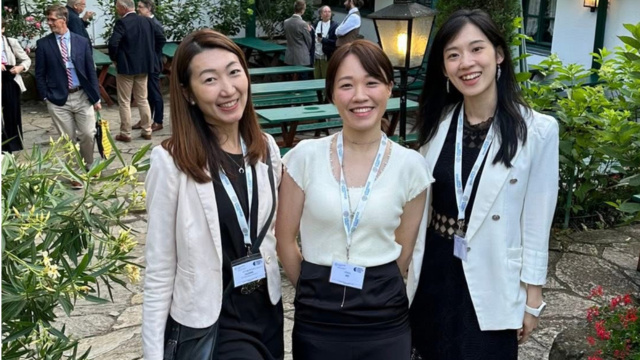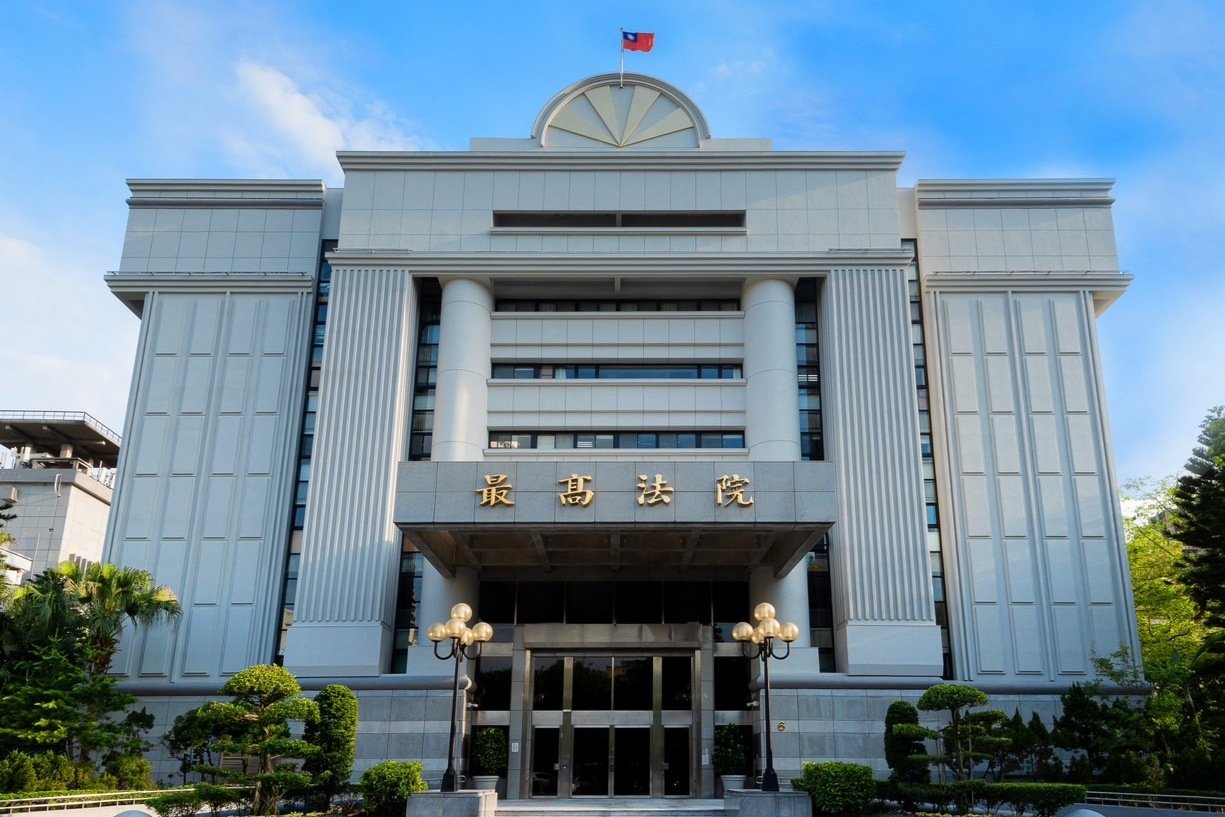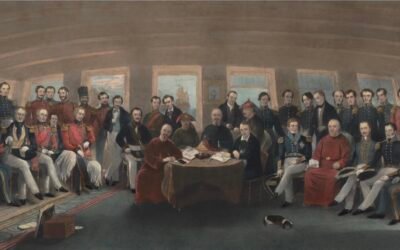A summary and legal analysis of a case that will not be resolved unless it is finally understood that it concerns freedom of religion or belief, not just taxes.
by Claudia Huang*
*A paper presented at the session “Religious Liberty in Taiwan: From the Martial Law to the Tai Ji Men Case” of the Eighth Annual Conference of the European Academy of Religion, Vienna, Austria, July 11, 2025.

I. Tai Ji Men and Me
Tai Ji Men Qigong incorporates Daoist philosophy, emphasizing the importance of living in harmony with nature and returning to one’s true self. Our Shifu (Grand Master) teaches us to reconnect with our original heart, listen to our inner voice, reflect on our actions, and correct our mistakes. In today’s fast-paced world, many people experience immense pressure, leading to issues such as insomnia and depression. This makes both physical and spiritual support more essential than ever.
I once struggled with an imbalance between my mind and body, feeling burdened by the pressures of studying, taking examinations, and work. However, through practicing Qigong and cultivating my heart in Tai Ji Men, I discovered a path to restore that balance.
Tai Ji Men follows the master-disciple tradition, where the Shifu guides each disciple to rediscover their conscience and work on self-improvement. This principle has profoundly impacted my professional life—first as a prosecutor and now as a lawyer—encouraging me to truly listen to my clients, seek thoughtful solutions, and strive to balance justice and their rights.
II. Introduction to The Tai Ji Men Case
After the Kuomintang (KMT) government retreated from mainland China to Taiwan, it declared Martial Law on the island. During this period, several new religious groups faced persecution. For instance, Yi Guan Dao, Soka Gakkai, and the Mount Zion Christian Community in Kaohsiung were banned from spreading their beliefs and were violently targeted. Even after Martial Law ended, incidents of religious persecution continued, such as in the Tai Ji Men case.
Following Taiwan’s first presidential election in 1996, the KMT launched a crackdown on religious groups, citing their involvement in the election as the reason. Despite Tai Ji Men not holding any political position, its master and some disciples were unjustly prosecuted.
The persecution took shape through both criminal and tax-related measures, with the government using mass media to spread misinformation and falsely portray Tai Ji Men as a “cult” organization. This campaign instilled widespread fear among thousands of disciples and their families, leading many to leave or interrupt their practices.
At the heart of the controversy was a fundamental misunderstanding of the nature of gifts presented by disciples to their Shifu, typically given in what are known as “red envelopes.” In Taiwanese culture, the contents of these envelopes are expressions of personal gratitude, understood as non-commercial and voluntary gifts. However, prosecutors distorted this gesture, labeling it as fraudulent income and subjecting it to taxation.
The National Taxation Bureau, without thorough legal investigation or consideration of logical inconsistencies, reclassified these gifts as tuition fees for a “cram school,” disregarding the deeply rooted Taiwanese custom of presenting red envelopes as gifts to respected elders. The National Taxation Bureau failed to recognize the disciples’ spiritual intent.
This mischaracterization misrepresented the disciples’ actions and infringed upon their cultural expression and freedom of belief. It constituted a form of ideological bullying and persecution, revealing a lack of due process and respect for the rights to freedom of religion and belief.
Eventually, the Supreme Court of Taiwan conclusively decided the Tai Ji Men case, affirming that the red envelopes given to the Shifu were indeed gifts and that Tai Ji Men is a non-profit organization with no business activities.
However, the National Taxation Bureau refused to acknowledge the Supreme Court’s decision. Relying solely on the prosecutor’s indictment, the Bureau issued substantial tax bills based on Tai Ji Men’s erroneous classification as a cram school. This misclassification led to six years of tax disputes, forcing Tai Ji Men into a prolonged legal battle in administrative courts. The administrative courts did not easily overturn the tax authority’s decisions, raising concerns about their professionalism and neutrality.

Over the past 29 years, Tai Ji Men’s tax case has achieved 18 victories in administrative relief proceedings. More than 300 legislators have signed petitions in support of their cause, and even the Control Yuan, Taiwan’s supervisory authority, has conducted two independent investigations. These investigations identified numerous violations committed by the prosecutor and the National Taxation Bureau.
The Supreme Administrative Court recognized Tai Ji Men as a Qigong and martial arts cultivation organization. Only the decision about one year’s tax bill ruling, 1992, was unfavorable to Tai Ji Men. While the National Taxation Bureau has acknowledged that Tai Ji Men is not a cram school, it has still refused to rectify its previous errors. Based on the 1992 tax ruling, in 2020, land owned by Tai Ji Men and intended for a self-cultivation and educational center was seized, unsuccessfully auctioned off, and subsequently nationalized, sparking domestic and international protests.
This ongoing refusal to rectify past errors reflects a deeper issue—a bureaucratic culture in Taiwan that often shields officials from accountability. The government’s inability to fully understand Tai Ji Men’s essence and correct the past’s wrongs remains a significant concern.
III. Recent Developments in the Tai Ji Men Case
Tai Ji Men has exhausted all available administrative relief in Taiwan. Even when petitions for a retrial were submitted, the courts refused to reopen the case. Administrative agencies have also declined to re-investigate or correct their flawed decisions. This situation violates the principle of effective remedy outlined in the two United Nations Covenants, which Taiwan incorporated into its domestic law in 2009.
Several NGOs have filed complaints with the United Nations, alleging that the Taiwanese government infringed on Tai Ji Men’s freedom of religion and belief. By drawing international attention to these violations—particularly concerning the right to belief—Tai Ji Men aims to highlight the government’s unjust deprivation of religious property and calls for global awareness and accountability.
Under the guidance of their Shifu, Tai Ji Men disciples have turned their persecution into a source of empowerment and positive action for the world. They assist others suffering from unfair judicial and tax systems and advocate for victims. Since 2016, experts and scholars have supported the cause through the Tax and Legal Reform League, organizing street demonstrations, public forums, and online videos.
Tai Ji Men has collaborated with the Tax and Legal Reform League to promote legislative reform. Through their case, volunteers seek to illuminate broader issues arising from government misjudgments and human rights violations.

These efforts have already achieved some success. For instance, after years of petitions, demonstrations, and legislative appeals, the long-stalled “Taxpayer Rights Protection Act”—which had been delayed in Taiwan’s Legislative Yuan for nearly five years—was finally passed in 2016.
In 2013, international human rights experts visited Taiwan to review the country’s implementation of the two UN Human Rights Covenants. They learned about the unjust Tai Ji Men case. In their concluding observations, they stated that the tax authority’s use of travel restrictions had seriously violated Article 12(2) of the International Covenant on Civil and Political Rights.
Taiwanese tax law scholars have noted that, thanks to Tai Ji Men’s efforts, the nation’s laws regarding travel restrictions were amended, resulting in a significant decrease in the number of individuals subjected to such restrictions.
As of 2024, Taiwan’s legislature began reviewing a draft bill for the “Act on the Trial of Tax Administrative Cases,” which aims to address persistent tax disputes like the Tai Ji Men case, which has endured endless rounds of litigation. However, the legislative process still needs to strengthen protections for taxpayers’ rights, and the Tax and Legal Reform League continues to monitor the process closely.
IV. The Tai Ji Men Case as a Legacy of Taiwan’s Post-Authoritarian Era
In recent years, the issue of transitional justice has garnered significant attention. In Taiwan, the Democratic Progressive Party (DPP) government passed the Act on Promoting Transitional Justice in 2017. The primary aim of this legislation is to address and rectify cases of political persecution that occurred during Taiwan’s transition from authoritarian rule to democracy.
However, the scope of this law is limited to the period between 1945 and 1992, covering the time when the Kuomintang (KMT) was in power. The case against Tai Ji Men, which originated from an unjust criminal prosecution in 1996, reflects the systemic abuses characteristic of that broader authoritarian era. While this case falls outside the time limit of the Act on Promoting Transitional Justice, the tax ruling that affected Tai Ji Men was enacted in 1992, within that timeframe.
Given the content of the Supreme Court’s ruling, it is clear that the tax decision made in 1992 was mistaken. Therefore, the state must redress and officially correct this wrongful decision. The Tai Ji Men case continues to cast a shadow over Taiwan’s authoritarian past—an issue that must be addressed to fulfill the true spirit of transitional justice.

As mentioned earlier, in 2009, Taiwan formally incorporated the International Covenant on Civil and Political Rights (ICCPR) and the International Covenant on Economic, Social and Cultural Rights (ICESCR) into its domestic legal framework. This move obligates the government to uphold core human rights, including the freedom of religion or belief and the right to participate in cultural life.
The Tai Ji Men case is not merely a tax dispute. It symbolizes discrimination through taxation, targeting disciples for their practice of offering gifts to their Shifu. This practice has infringed upon their freedom of belief, cultural rights, and the principle of equality. Furthermore, the government has violated the ICCPR’s guarantee of an effective remedy by refusing to correct the wrongful rulings.
V. Conclusion
The Taiwanese government positions itself as a beacon of democracy in Asia. However, it has yet to address past injustices and has not adequately responded to the concerns raised by international human rights scholars.
We urge all sectors of society to continue monitoring the developments in the Tai Ji Men case. This case should serve as a significant study for advancing international dialogue on freedom of religion and belief and promoting the overall progress of human rights worldwide.

Claudia Huang, born in Taichung, Taiwan, holds a Master’s degree from the Department of Law at National Taiwan University. From 2012 to 2023, she served as a prosecutor at Taipei District Prosecutor’s office and is currently practicing as a lawyer. She has been practicing Tai Ji Men Qigong for more than fifteen years. In the past, she has been involved in cultural exchange and forum activities organized by non-governmental organizations including the Association of World Citizens (AWC) in roles as a member and volunteer.



